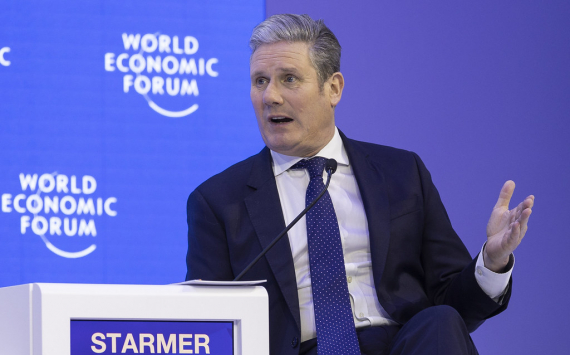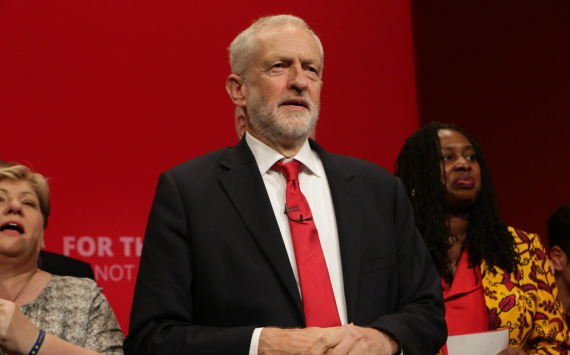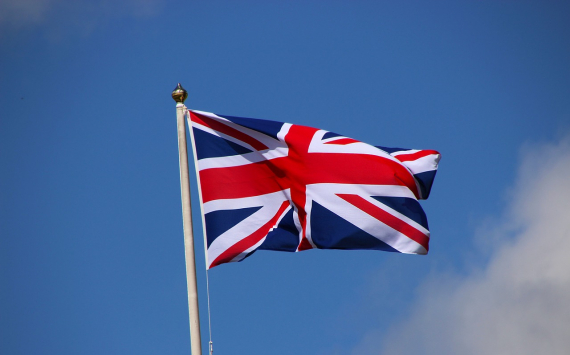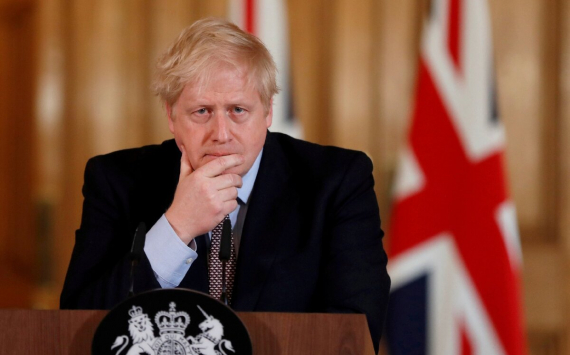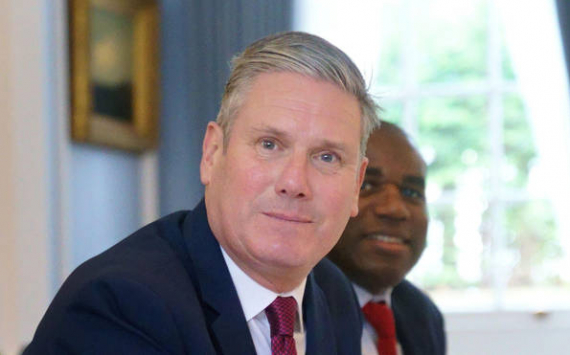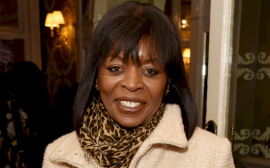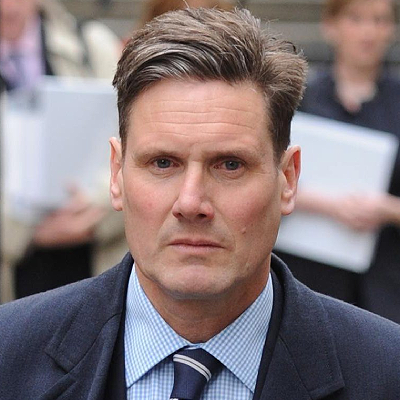
STARMER
Keir
Rodney
Politician
Organization: Labour Party
Date of Birth: 2 September 1962
Age: 61 years old
Place of Birth: Southwark, London, England
Zodiac sign: Virgo
Profession: Politician
Biography
Sir Keir Rodney Starmer KCB QC (born 2 September 1962) is a British politician and former lawyer who has served as Leader of the Labour Party and Leader of the Opposition since 2020. He has been Member of Parliament (MP) for Holborn and St Pancras since 2015. Ideologically, Starmer identifies as a socialist and has been described as being on the soft left within the Labour Party.
Starmer was born in London and raised in Surrey, where he attended the selective state Reigate Grammar School, which became an independent school while he was a student. He graduated with a Bachelor of Laws from the University of Leeds in 1985 and gained a postgraduate Bachelor of Civil Law degree at St Edmund Hall at the University of Oxford in 1986.
After qualifying for the bar, Starmer acted exclusively as a defence lawyer, specialising in human rights issues as a member of Doughty Street Chambers, before being named a Queen's Counsel (QC) in 2002. In 2008, he became Director of Public Prosecutions (DPP) and Head of the Crown Prosecution Service (CPS), holding these roles until 2013. On conclusion of his five-year term as Director of Public Prosecutions, he was appointed Knight Commander of the Order of the Bath (KCB) in the 2014 New Year Honours.
Elected to the House of Commons in the 2015 general election, Starmer became Shadow Minister for Immigration in 2015 before being appointed to the Shadow Cabinet in October 2016 as Shadow Secretary of State for Exiting the European Union after Britain voted to leave the European Union. Starmer advocated a second referendum on Brexit, saying he would have voted to remain. After Labour's defeat in the 2019 general election, Starmer was elected to succeed Jeremy Corbyn as Labour leader in April 2020. Starmer's tenure as leader has been marked by his opposition to some of the Conservative government's COVID-19 pandemic measures, and has included removing the party whip from his predecessor, a by-election loss in the previously Labour seat Hartlepool and a hold in Batley and Spen, with mixed results in the 2021 local elections.
Early life and education
Keir Rodney Starmer was born in Southwark, London, on 2 September 1962[1][2] and grew up in the small town of Oxted in Surrey.[3][4][5] He was born the second of the four children of Josephine (née Baker), a nurse, and Rodney Starmer, a toolmaker.[5][6][7] His mother had Still's disease.[8][9] His parents were Labour Party supporters, and named him after the party's first parliamentary leader, Keir Hardie.[10][11] He passed the 11-plus examination and gained entry to Reigate Grammar School,[11] then a voluntary aided selective grammar school, although it was converted into an independent fee-paying school in 1976 while he was there (although he was exempt from paying fees).[12][13] Among his classmates were musician Norman Cook, alongside whom Starmer took violin lessons, Andrew Cooper, who went on to become a Conservative peer, and future conservative journalist Andrew Sullivan: according to Starmer, he and Sullivan "fought over everything... Politics, religion. You name it."[5]
In his teenage years Starmer was active in Labour politics, and was a member of the East Surrey Young Socialists.[6][5] He was a junior exhibitioner at the Guildhall School of Music and Drama until the age of 18, and played the flute, piano, recorder and violin.[14] Starmer studied law at the University of Leeds, graduating with a first class Bachelor of Laws (LLB) degree in 1985, becoming the first member of his family to graduate.[15][16] He undertook postgraduate studies at St Edmund Hall, Oxford, graduating from the University of Oxford as a Bachelor of Civil Law (BCL) in 1986.[17][15] From 1986 to 1987, Starmer edited the radical magazine Socialist Alternatives.[18]
Legal career
Barrister
Starmer became a barrister in 1987, at the Middle Temple, later becoming a bencher there in 2009.[1] He served as a legal officer for the campaign group Liberty until 1990.[19] He was a member of Doughty Street Chambers from 1990 onwards, primarily working on human rights issues.[8][19] He has been called to the bar in several Caribbean countries,[20] where he has defended convicts sentenced to the death penalty.[5] He notably worked for Helen Steel and David Morris in the McLibel case, which went to court in 1997. In an interview, he described the case as "very much a David and Goliath", and said that "there's an extremely good legal team acting for McDonald's at great expense and Dave and Helen have had to act for themselves with me as a sort of free back up whenever possible." He was interviewed for McLibel, the documentary about the case directed by Franny Armstrong and Ken Loach.[21]
He was appointed Queen's Counsel on 9 April 2002, aged 39.[22] In the same year, he became joint head of Doughty Street Chambers. Starmer served as a human rights adviser to the Northern Ireland Policing Board and the Association of Chief Police Officers, and was also a member of the Foreign Office's death penalty advisory panel from 2002 to 2008.[1][19] He later cited his work on policing in Northern Ireland as being a key influence on his decision to pursue a political career: "Some of the things I thought that needed to change in police services we achieved more quickly than we achieved in strategic litigation... I came better to understand how you can change by being inside and getting the trust of people". During this time he also marched and authored legal opinions against the Iraq War.[5] In 2007, he was named "QC of the Year" by Chambers and Partners.[23]
Director of Public Prosecutions
In July 2008, Attorney General Baroness Scotland of Asthal named Starmer as the new Head of the Crown Prosecution Service (CPS) and Director of Public Prosecutions; he took over from Ken Macdonald on 1 November 2008.[24] Macdonald, himself a former defence lawyer, publicly welcomed the appointment.[11] Starmer was considered to be bringing a focus on human rights into the legal system.[19]
Within the first few months of his tenure, Starmer upheld the decision not to prosecute the officers who had killed Jean-Charles de Menezes in a High Court appeal lodged by the family. De Menezes was shot dead by police in 2005 after he was mistaken for a suicide bomber. The reviewing lawyer said that no new evidence had been presented to the inquest which would make him reconsider the earlier decision not to prosecute more senior officers for negligence. De Menezes's cousin, Vivian Figuierdo, said "we are all in shock and simply cannot understand how the deliberate killing of an innocent man and an attempt by the Metropolitan police to cover it up does not result in a criminal offence."[25] The family then gave up on pursuing charges and nobody has been charged with the death of Mr de Menezes.[26]
Later in 2009, when the Conservative Party proposed repealing the Human Rights Act, Starmer defended it as a "clear and basic statement of our citizens' human rights".[27] Liberty and the Liberal Democrats supported Starmer, while the Conservative MP David T. C. Davies suggested that he should be sacked.[28] In the same year, he called for the CPS to modernise by being more open to scrutiny and less reliant on paper files.[29] In 2011, he would introduce reforms that included the "first test paperless hearing".[30]
In February 2010, Starmer announced the CPS's decision to prosecute three Labour MPs and a Conservative peer for offences relating to false accounting in the aftermath of the United Kingdom parliamentary expenses scandal.[31] They were all found guilty.[32] In the same year, he also supported proposals to legally recognise different degrees of murder.[33] In 2010, and 2012, Starmer said that there was insufficient evidence to prosecute two members of the UK security services for their alleged role in torture overseas, but supported further investigation.[34] In July 2010, Starmer announced the decision not to prosecute the police officer Simon Harwood in relation to the death of Ian Tomlinson; this led to accusations by Tomlinson's family of a police cover-up.[35] After a subsequent inquest found that Tomlinson had been unlawfully killed, Starmer announced that Harwood would be prosecuted for manslaughter. The officer was acquitted in July 2012 by a jury, but dismissed from the police that September.[36][37][38] In December 2010, Starmer changed the decision process to require his personal approval to prosecute women who withdraw accusations of rape.[39] He later produced guidelines to prevent the same women from being unfairly prosecuted.[40]
During the 2011 riots, Starmer prioritised rapid prosecutions of rioters over long sentences, which he later thought had helped to bring "the situation back under control".[41] Later that year, after revelations concerning the undercover police infiltration of environmental campaigns, Starmer ordered a review of related convictions and invited protestors convicted of aggravated trespass to appeal their sentences.[42] Starmer declined to authorise a wider enquiry, after a report from the judge Christopher Rose found the issue to be a result of individual fault rather than a systemic problem.[43]
In February 2012, Starmer announced that Energy Secretary Chris Huhne and his former wife, Vicky Pryce, would be prosecuted for perverting the course of justice. Huhne became the first Cabinet Minister in British history to be compelled to resign as a result of criminal proceedings.[44] Starmer had previously said in relation to the case that "[w]here there is sufficient evidence we do not shy away from prosecuting politicians".[45] Later that year, he wrote advice for prosecutors, saying that they should consider whether violent protestors organised or prepared for violence, compared to protestors who got "caught up in illegal actions".[46] In the summer of 2012, journalist Nick Cohen published allegations that Starmer was personally responsible for allowing to proceed the prosecution of Paul Chambers in what became known as the "Twitter Joke Trial". Chambers’ conviction of sending a message "of a menacing character" was quashed after a third appeal. The CPS denied that Starmer was behind the decision, saying that it was the responsibility of a Crown Court and was out of Starmer's hands.[47] Later that year, Starmer published a plan for the criminal justice system to better handle cases of female genital mutilation, an offence which at the time had never been successfully prosecuted.[48] At the end of 2012, he published guidance on prosecuting cases of grossly offensive posts on social media that called for caution in prosecuting cases, and considering whether users quickly removed posts or showed remorse.[49][50]
In 2013, Starmer announced changes to how sexual abuse investigations would be handled in the wake of the Jimmy Savile sexual abuse scandal, including a panel to review historic complaints.[51][52] In the same year, he published a study showing that false reports of rape were rare, saying that the "devastating impact of false allegations" and the perception that they're more common than the data support mean that police forces might adopt a "cautious" approach that can "lead to injustice for victims".[53] He also started an inquiry into the cause of a reduction in police reports of rape and domestic abuse.[54] In the same year, he altered guidelines for those improperly claiming benefits enabling them to face ten years in prison under the Fraud Act.[55]
Starmer left office in November 2013, and was replaced by Alison Saunders.[56][57] Later that month, the Labour Party announced that Starmer would lead an enquiry into changing the law to give further protection to victims in cases of rape and child abuse.[58] On 28 December, he said to BBC News he was "rather enjoying having some free time" and "considering a number of options".[59] There was speculation at the time that he would stand as a Labour Party candidate for Parliament.[60]
Early political career
Member of Parliament
Starmer was selected in December 2014 to be the Labour Party's prospective parliamentary candidate for the safe Labour constituency of Holborn and St Pancras, following the decision of the sitting MP Frank Dobson to retire.[61] Starmer was elected at the 2015 general election with a majority of 17,048.[62] He was urged by a number of activists to stand to be leader of the Labour Party in the 2015 leadership election following the resignation of Ed Miliband, but he ruled this out, citing his relative lack of political experience.[63][64] During the campaign, Starmer supported Andy Burnham, who finished second to Jeremy Corbyn.[65]
Corbyn appointed Starmer to the shadow Home Office ministerial team as Shadow Minister for Immigration, a role from which he resigned in 2016 in protest at Corbyn's leadership, along with numerous other Labour MPs,[66][67] arguing that it was "simply untenable now to suggest we can offer an effective opposition without a change of leader".[68]
Shadow Brexit Secretary
Starmer pictured with his shadow cabinet colleagues at the launch of Labour's 2019 general election campaign
Following Corbyn's re-election as leader in September 2016, Starmer accepted an appointment as shadow Brexit secretary, replacing Emily Thornberry in this role.[69] On taking up the role, Starmer resigned from a consultancy position with the law firm specialising in human rights, Mishcon de Reya LLP, that had acted for Gina Miller in bringing legal proceedings against the Government.[70]
In his role as shadow Brexit secretary, Starmer questioned the Government's "destination" for the UK outside of the European Union, as well as calling for Brexit plans to be made public. On 6 December 2016, Prime Minister Theresa May confirmed the publication of such plans, in what some considered a victory for Starmer.[71] He has argued that the Government would be subject to a race against time to pass a large number of new laws, or risk an "unsustainable legal vacuum", if Britain left the EU without a deal.[72] On 25 September 2018, Starmer declared to the Labour Party Conference in Liverpool that "campaigning [by the party] for a public vote must be an option".[73]
Starmer has called for a reform to the EU free movement rules following Brexit and for a "fundamental rethink of immigration rules from start to finish".[74] In his first interview after being appointed to the Shadow Cabinet, Starmer argued that immigration was too high and called for it to be reduced as Britain leaves the EU, despite Corbyn ruling out any cap.[75] Starmer told Politico in November 2016 that negotiations with the EU should start on the understanding that there must be "some change" to freedom of movement rules, given that remaining in the EU single market is no longer a reality.[76]
In May 2017, Starmer said that "free movement has to go", but that it was important to retain "free movement of labour", given the importance of immigration for the UK's economy.[77] Starmer was a supporter of a second referendum on Brexit,[78] with this position becoming Labour Party policy in their 2019 general election manifesto.[79] In June 2020, the Labour Together report on the 2019 election concluded that the second referendum policy was a major contributor to the Party's defeat "by a country mile".[80]
Leadership of the Labour Party
Leadership election
Following Labour's heavy defeat at the 2019 general election, Jeremy Corbyn announced that he would stand down as Leader of the Labour Party. Starmer announced his candidacy in the ensuing leadership election on 4 January 2020, winning multiple endorsements from MPs, as well as from the trade union Unison.[81] Supporters of Rebecca Long-Bailey criticised Starmer for releasing details of his campaign donations on the register of members' interests rather than independently, as Long-Bailey and Lisa Nandy had done, which meant that details of his donors weren't published until after voting had opened.[82][83][84][85] He went on to win the leadership contest on 4 April 2020, beating Long-Bailey and Nandy, with 56.2% of the vote in the first round,[86] and therefore also became Leader of the Opposition.[87] In his acceptance speech, he said would refrain from "scoring party political points" and that he planned to "engage constructively with the government", having become Opposition Leader amid the COVID-19 pandemic.[88]
Tenure
He appointed his Shadow Cabinet over the course of the week following the leadership election, which included former leader Ed Miliband, as well as both of the candidates he defeated in the contest. He also appointed Anneliese Dodds as Shadow Chancellor of the Exchequer, making her the first woman to serve in that position in either a ministerial or shadow ministerial position.[89]
During the April pandemic lockdown, Starmer warned that the government was "in danger of being slow on their exit strategy" and called for "a roadmap to lift restrictions in certain sectors of the economy".[90][91] But, despite various criticisms, he said that "the government is trying to do the right thing. And in that, we will support them."[92]
On 25 June 2020, Starmer sacked his former leadership rival, Rebecca Long-Bailey, from her post as Shadow Secretary of State for Education. Long-Bailey had refused to delete a tweet calling the actress Maxine Peake an "absolute diamond" and linking to an interview in The Independent in which Peake said that the practice of kneeling on someone's neck by US police, as used in the murder of George Floyd in Minneapolis, was "learnt from seminars with Israeli secret services". The original article stated that "the Israeli police has denied this."[93] Starmer said that because the article "contained anti-Semitic conspiracy theories" it should not have been shared by Long-Bailey.[94][95] The decision to sack Long-Bailey was criticised by the Socialist Campaign Group, whose members had a meeting with Starmer about the decision.[96] The decision was welcomed by Jewish groups including the Board of Deputies and the Jewish Labour Movement. Starmer said that "restoring trust with the Jewish community is a number one priority. Antisemitism takes many different forms and it is important that we all are vigilant against it."[97][98] On 27 June, he replaced her with Kate Green.[99]
On 16 August, he pushed for Johnson to reopen schools in September, saying there were "no ifs, no buts, no equivocation" regarding the decision.[100]
Starmer made his first speech to the Labour Party's conference on 22 September 2020[101] which was introduced by former Labour MP for Stoke-on-Trent North Ruth Smeeth, a frequent critic of Corbyn's leadership of the Labour Party and his handling of alleged cases of antisemitism in the Labour Party.[102][103] He made his speech from Doncaster, Yorkshire via livestream as a result of COVID-19 restrictions.[101] He attacked the Government's handling of the COVID-19 crisis, calling it "serial incompetence" and suggesting that Prime Minister Boris Johnson was "just not up to the job".[101] Labour unveiled "A New Leadership" as its new slogan the day before the conference.[104]
On 23 September 2020, three frontbenchers – Olivia Blake, Nadia Whittome and Beth Winter – rebelled against Labour's position of abstention on the Overseas Operations (Service Personnel and Veterans) Bill and voted against the bill. All three lost their frontbench roles over the issue. This move was seen as an indication of the firm discipline Starmer intends to exert over his party.[105] This same discipline was seen with the Covert Human Intelligence Sources (Criminal Conduct) Bill. In its third reading, on 15 October 2020, the Labour Party stance was to abstain, yet 34 Labour MPs rebelled, including shadow ministers Dan Carden and Margaret Greenwood and five parliamentary private secretaries who all resigned from their frontbench roles. These 34 were penalised the next day by being put on probation for going against the one-line whip to abstain.[106]
In October 2020, Starmer called for the government to introduce a "circuit-breaker" lockdown for at least two weeks to reduce the impact of COVID-19 over the winter, which had been revealed to have been recommended by the Scientific Advisory Group for Emergencies but not implemented by the government.[107]
Later the same month, following the release of the Equality and Human Rights Commission's report into antisemitism in the party, Starmer accepted its findings in full and apologised to Jewish people on behalf of the party.[108][109] Later that day, Labour suspended former leader Corbyn over his response to the report.[110] Some saw Starmer's actions as "civil war" against the left of the party[111] and many on the left called for Corbyn's suspension to be lifted.[112] Starmer's refusal to reverse the decision regarding Corbyn's suspension (and later the whip) resulted in sections of the left feeling alienated.[113]
2021 local elections
Starmer led the Labour Party into the 2021 UK local elections.[114] On Thursday 11 March, Starmer launched Labour's local election campaign, with deputy leader Angela Rayner, Mayor of London Sadiq Khan, First Minister of Wales Mark Drakeford, Scottish Labour leader Anas Sarwar and West Yorkshire metro-mayor candidate Tracy Brabin as speakers. The party focused its election priorities on giving nurses a pay rise.[115][116]
Going into the short campaign period, the Conservative Party started to develop a 6–7% poll lead on the Labour Party.[117]
Starmer was criticised for the Labour Party's failure to retain Hartlepool at the 2021 Hartlepool by-election. The seat is part of the "red wall", a set of constituencies that historically supported the Labour Party but where the party is being challenged by increasing Conservative support.[118] The Labour Party candidate, Dr Paul Williams, was a vocal advocate of a second referendum on EU membership. However, the constituency of Hartlepool supported Brexit by almost 70%, leading to criticism that Starmer had made the wrong decision in advocating for Williams to be selected as the candidate.[119][120][121] The Conservative candidate, Jill Mortimer, won the by-election with 51.9% of the vote and a swing from Labour of almost 16%.[122] It became only the second time since 1982 that the governing party gained a seat in a by-election,[122] and the first Conservative win in the constituency since its creation in 1974, with a majority of 6,940 votes.[123]
The Labour Party failed to take the position of Mayor of the West Midlands, a key Labour target. The Labour candidate, Liam Byrne, the Member of Parliament (MP) for Birmingham Hodge Hill and a former Cabinet minister under Prime Minister Gordon Brown, lost to incumbent Mayor Andy Street. In the May 2017 mayoral election, Street narrowly defeated Siôn Simon with 50.4% of the vote in the second round. In 2021, Street increased his vote share to 54% in the second round.[124]
In the aftermath, Starmer carried out a Shadow Cabinet reshuffle. Starmer sacked Angela Rayner as Chair of the Labour Party and National Campaign Coordinator following the elections.[125][126] The move was criticised by former Shadow Chancellor John McDonnell and Mayor of Greater Manchester Andy Burnham.[127][128] The major outcome of the reshuffle was the demotion of the Shadow Chancellor, Anneliese Dodds.[129] Rachel Reeves was appointed as the new Shadow Chancellor and Angela Rayner succeeded Reeves as Shadow Chancellor of the Duchy of Lancaster. Nick Brown was dismissed as Chief Whip and replaced by his deputy, Alan Campbell. Valerie Vaz departed as Shadow Leader of the House of Commons and was replaced by Thangam Debbonaire, who in turn was succeeded as Shadow Housing Secretary by Lucy Powell.
On 11 May 2021, Starmer's Parliamentary Private Secretary (PPS) Carolyn Harris resigned, which The Times reported was after allegedly spreading false rumours about the private life of Angela Rayner prior to her sacking.[130][131] Sharon Hodgson was appointed as Starmer's new PPS.[132]
On 1 July Labour held on to the seat of Batley and Spen in a by-election, a result which was considered to have taken pressure off Starmer's leadership.[133]
Political positions
A self-proclaimed socialist,[134] Starmer has stated that his advocacy of socialism is motivated by "a burning desire to tackle inequality and injustice".[135] He has been described as being on the "soft left".[136][137][138][139] Gavin Millar, a former legal colleague of Starmer's, has described his politics as "red-green", a characterisation Starmer has agreed with.[5]
Starmer supports social ownership and investment in the UK's public services, including the NHS, as well as the abolition of university tuition fees.[140][141][142] He has called for an increase in income tax for the top 5% of earners and an end to tax avoidance by corporations.[140] He advocates the reversal of the Conservative Party's cuts in corporation tax and supported Labour's anti-austerity proposals under Jeremy Corbyn's leadership.[140][141] On social inequality, Starmer proposes "national wellbeing indicators" to measure the country's performance on health, inequality, homelessness, and the environment.[143] He has called for an "overhaul" of the UK's Universal Credit scheme.[144] Opposing Scottish independence and a second referendum on the subject, the Labour party under Starmer's leadership has set up a constitutional convention to address what he describes as a belief among people across the UK that "decisions about me should be taken closer to me."[145][146] Starmer is against the reunification of Ireland, having stated that he would be "…very much on the side of Unionists, arguing for Northern Ireland to remain in the UK" if there were a border poll.[147]
Starmer has advocated an end to "illegal wars" and a review of the UK arms export.[140] During his leadership campaign, he pledged to create a "Prevention of Military Intervention Act", which would only permit lawful military action with the support of the House of Commons.[148][149] Starmer stated in 2015 that he believed that the Iraq War was "not lawful under international law because there was no UN resolution expressly authorising it."[150] Though previously an advocate for a second Brexit referendum after the process of the UK's withdrawal from the EU was completed he ruled out a return to free movement or substantial renegotiation of the EU–UK Trade and Cooperation Agreement if Labour won the next United Kingdom general election.[151] Of the United States as it transitioned from the presidency of Donald Trump to that of Joe Biden, he said: "I'm anti-Trump but I'm pro-American. And I'm incredibly optimistic about the new relationship we can build with President Biden," and argued that "Britain is at its strongest" when it is "the bridge between the US and the rest of Europe."[146] Starmer said that Israel "must respect international law" and called on the Israeli government to work with Palestinian leaders to de-escalate tensions.[152]
Personal life
Starmer married Victoria Alexander in 2007.[153] She was previously a solicitor but now works in NHS occupational health.[5][154] The couple's son and daughter are being brought up in the Jewish faith of their mother and the family attend shabbat dinners.[9] Starmer himself identifies as an atheist.[155] Starmer is a keen footballer, having played for Homerton Academicals, a north London amateur team,[156] and supports Premier League side Arsenal.[5]
Starmer is a vegetarian, believing that "it's better for yourself and for the environment".[157]
Awards and honours
- Appointed Queen's Counsel (QC) in 2002.[158]
- Bar Council's Sydney Elland Goldsmith Award in 2005, for his outstanding contribution to pro bono work in challenging the death penalty in Uganda, Kenya, Malawi and the Caribbean.[159]
- Elected Honorary Fellow of St Edmund Hall, Oxford, in 2012.[1]
- Appointed Knight Commander of the Order of the Bath (KCB) in the 2014 New Year Honours for "services to law and criminal justice".[160][161] The knighthood entitles him to be styled as "Sir Keir Starmer"; however, he prefers that people do not use the title "Sir".[162][163]
- Sworn into the Privy Council of the United Kingdom on 19 July 2017.[164] This enabled him to be styled "The Right Honourable".[165]
Starmer is a vegetarian, believing that "it's better for yourself and for the environment".[157]
Publications
Starmer is the author and editor of several books about criminal law and human rights:[1]
- Justice in error, ed. by Clive Walker and Keir Starmer (London: Blackstone, 1993), ISBN 1-85431-234-0
- Francesca Klug, Keir Starmer and Stuart Weir, The three pillars of liberty: political rights and freedoms in the United Kingdom (London: Routledge, 1996), ISBN 0-415-09641-3
- Conor Foley and Keir Starmer, Signing up for human rights: the United Kingdom and international standards (London: Amnesty International United Kingdom, 1998), ISBN 1-873328-30-3
- Miscarriages of justice: a review of justice in error, ed. by Clive Walker and Keir Starmer (London: Blackstone, 1999), ISBN 1-85431-687-7
- Keir Starmer, European human rights law: the Human Rights Act 1998 and the European Convention on Human Rights (London: Legal Action Group, 1999), ISBN 0-905099-77-X
- Keir Starmer, Michelle Strange, and Quincy Whitaker, with Anthony Jennings and Tim Owen, Criminal justice, police powers and human rights (London: Blackstone, 2001), ISBN 1-84174-138-8
- Keir Starmer with Iain Byrne, Blackstone's human rights digest (London: Blackstone, 2001), ISBN 1-84174-153-1
- Keir Starmer and Jane Gordon, A report on the policing of the Ardoyne parades 12 July 2004 (Belfast: Northern Ireland Policing Board, 2004)
Mentions in the news
Born in one day
(Tiger) .
Horoscope Virgo: horoscope for today, horoscope for tomorrow, horoscope for week, horoscope for month, horoscope for year.








